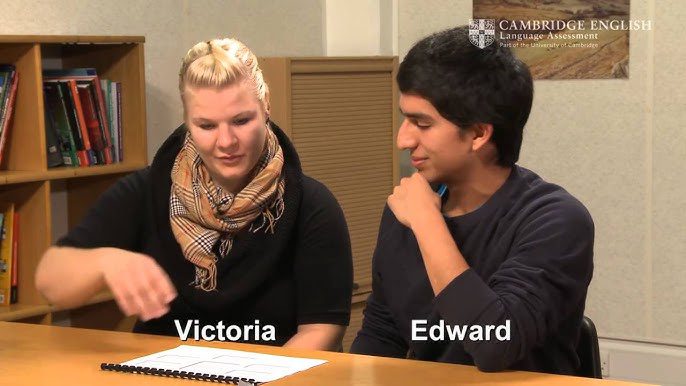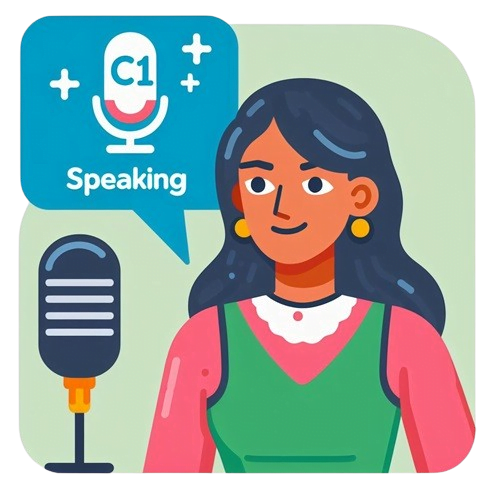Cambridge C1 Advanced CAE Speaking: Practice Test Questions
C1 Speaking Questions
If you’re gearing up for the C1 Advanced (CAE) exam, mastering the speaking part is a must. In this blog post, I’ll break down CAE speaking practice questions, sharing tips and tricks to make this part a breeze. Whether you’re a pro or just starting, getting the hang of speaking well is super important to nail the whole exam.
First things first, check out my guides on the CAE speaking section to make sure you know how to practice and answer these question.
Guide to Speaking:

What you will find in this guide:
Sample Question
1. Technology
Part 1: Interview
1. How has technology changed the way people communicate in the last decade?
2. In what ways do you think technology has improved or hindered work-life balance?
3. How can advancements in technology impact healthcare delivery?
4. Discuss the ethical considerations of using artificial intelligence in decision-making processes.
5. How do you see the future of technology shaping the way we learn new skills?
Part 2: Long Turn
1. Discuss the potential societal impacts of widespread use of virtual reality technology.
2. Talk about the role of technology in addressing global challenges, such as the recent pandemic.
3. How can technology be harnessed to improve accessibility for people with disabilities?
4. Analyze the effects of social media on political discourse and public opinion.
5. In what ways can technology contribute to environmental conservation efforts?
Part 3: Collaborative Task
1. Debate the ethical considerations surrounding the development and use of autonomous vehicles.
2. Plan and discuss the advantages and disadvantages of remote work facilitated by technology.
3. How can technology promote inclusivity in education for diverse learners?
4. Discuss the impact of social media algorithms on shaping public opinion.
5. Explore the role of technology in bridging the digital divide between urban and rural areas.
Part 4: Discussion
1. Explore the ethical implications of data privacy in the age of big data.
2. Discuss the role of technology in promoting global connectivity and understanding.
3. How can technology contribute to disaster preparedness and response?
4. Analyze the impact of online platforms on traditional forms of media.
5. Discuss the ethical considerations of using technology to enhance human physical and cognitive abilities.
2. Environment
Part 1: Interview
1. What steps do you think individuals can take to reduce their carbon footprint?
2. In what ways can technology contribute to environmental conservation efforts?
3. How do you see the role of renewable energy sources in addressing climate change?
4. Discuss the impact of climate change on biodiversity and ecosystems.
5. What role should governments play in regulating and promoting sustainable practices?
Part 2: Long Turn
1. Discuss the potential consequences of climate change on global migration patterns.
2. Talk about innovative solutions for reducing plastic pollution in oceans.
3. Explore the challenges and benefits of transitioning to a circular economy.
4. Discuss the role of individual consumer choices in environmental conservation.
5. Analyze the impact of urbanization on local ecosystems and biodiversity.
Part 3: Collaborative Task
1. Plan and discuss policies to promote sustainable agriculture and reduce deforestation.
2. Debate the role of individuals versus governments in addressing environmental issues.
3. How can international collaboration help combat global environmental challenges?
4. Discuss the role of technology in monitoring and mitigating environmental pollution.
5. Explore the impact of climate change on the availability of freshwater resources.
Part 4: Discussion
1. Discuss the role of public awareness campaigns in promoting environmental conservation.
2. Explore the ethical considerations of eco-tourism in fragile ecosystems.
3. Debate the trade-offs between economic development and environmental conservation.
4. Discuss the impact of climate change on indigenous communities and their traditional practices.
5. Explore the role of international agreements in protecting endangered species and habitats.
3. Education
Part 1: Interview
1. How has technology influenced the way education is delivered and received?
2. Discuss the role of extracurricular activities in a well-rounded education.
3. In what ways can educators promote critical thinking skills in students?
4. Talk about the impact of standardized testing on students’ mental health.
5. What challenges do students face in accessing quality education globally?
Part 2: Long Turn
1. Discuss the advantages and disadvantages of a global standardized education curriculum.
2. Talk about the impact of student diversity on the learning environment.
3. Explore the benefits of incorporating arts and creativity into the education system.
4. Discuss the role of vocational training in preparing students for the workforce.
5. Analyze the impact of socioeconomic factors on educational attainment.
Part 3: Collaborative Task
1. Plan and discuss strategies for incorporating critical thinking skills into the education system.
2. Debate the role of vocational training in the context of a rapidly changing job market.
3. How can technology be effectively integrated into the classroom to enhance learning?
4. Discuss the challenges and benefits of inclusive education for students with disabilities.
5. Explore the impact of standardized testing on the quality of education.
Part 4: Discussion
1. Explore the impact of digital literacy on educational outcomes.
2. Discuss the role of teachers in promoting diversity and inclusion in the classroom.
3. How can education systems better prepare students for the challenges of the 21st century?
4. Analyze the impact of education on social mobility and economic inequality.
5. Discuss the importance of lifelong learning in a rapidly evolving global landscape.
4. Globalization
Part 1: Interview
1. How has globalization affected cultural diversity in your country?
2. Discuss the role of international trade agreements in shaping economic policies.
3. In what ways has globalization impacted local traditions and customs?
4. Explore the effects of globalization on cultural exchange and understanding.
5. How do you see the future of international relations in an increasingly interconnected world?
Part 2: Long Turn
1. Talk about the potential benefits and challenges of a global common currency.
2. Explore the impact of globalization on local industries and traditional livelihoods.
3. Discuss the role of international organizations in addressing global challenges.
4. Analyze the effects of globalization on income inequality within and between countries.
5. In what ways can globalization contribute to or mitigate global conflicts?
Part 3: Collaborative Task
1. Plan and discuss strategies to address cultural sensitivity in international business.
2. Debate the role of multinational corporations in promoting or undermining local economies.
3. Discuss the impact of globalization on the availability and affordability of goods.
4. Explore the benefits and drawbacks of international cultural exchange programs.
5. How can countries balance national sovereignty with global cooperation in the face of crises?
Part 4: Discussion
1. Discuss the ethical considerations of outsourcing jobs to low-wage countries.
2. Explore the impact of cultural imperialism in the age of globalization.
3. Debate the role of international aid in addressing global poverty and inequality.
4. Discuss the impact of globalization on healthcare systems in different regions.
5. How can countries collaborate to address global challenges such as public health crises and climate change?
5. Health and Well-being
Part 1: Interview
1. What role should governments play in promoting public health?
2. Discuss the impact of socioeconomic factors on access to healthcare.
3. In what ways can communities promote a culture of health and well-being?
4. How can technology contribute to mental health awareness and support?
5. Talk about the ethical considerations of genetic testing for health purposes.
Part 2: Long Turn
1. Talk about the potential benefits and risks of widespread use of health-tracking technology.
2. Explore the role of preventive healthcare measures in reducing overall healthcare costs.
3. Discuss the impact of lifestyle choices on overall well-being.
4. How can healthcare systems address the challenges of an aging population?
5. In what ways can governments promote healthy habits and combat obesity?
Part 3: Collaborative Task
1. Plan and discuss initiatives
to combat the rising rates of obesity in society.
2. Debate the ethical considerations of using genetic data for personalized medicine.
3. Discuss the role of public awareness campaigns in preventing the spread of infectious diseases.
4. Explore the impact of social and economic disparities on mental health outcomes.
5. How can healthcare systems balance innovation and accessibility for all?
Part 4: Discussion
1. Explore the role of alternative medicine in modern healthcare.
2. Discuss the impact of public health policies on individual freedoms.
3. Debate the ethical considerations of organ transplantation and organ trade.
4. How can societies address the stigma associated with mental health issues?
5. Explore the challenges and benefits of global cooperation in addressing public health crises.
FAQ
The C1 Speaking Exam, part of the Cambridge C1 Advanced (CAE) certification, assesses a candidate’s ability to communicate effectively in English at an advanced level. It evaluates linguistic proficiency across various contexts, including social and professional situations. The exam comprises four parts: Interview, Long Turn, Collaborative Task, and Discussion, each designed to measure different aspects of language skills, such as fluency, accuracy, vocabulary range, and discourse management.
Effective preparation for the C1 Speaking Exam involves a combination of language practice and familiarity with the exam format. To prepare, consider engaging in regular English conversations, either with native speakers or language exchange partners. Additionally, review the exam structure and practice with sample questions. Familiarize yourself with the assessment criteria and seek feedback on your performance. You can read my comprehensive guides down below:
- Yes, for the Interview, be ready to discuss personal experiences and express opinions clearly. In the Long Turn, structure your speech coherently, emphasizing key points. In the Collaborative Task, engage actively with others, ensuring balanced participation. Finally, for the Discussion, demonstrate critical thinking, address ethical considerations, and respond thoughtfully to questions. You can read my guides here.
- Part 1
- Part 2
- Part 3
- Part 4







I appreciate, cause I discovered exactly what I was having a look for.
You have ended my four day lengthy hunt! God Bless you man. Have a nice day.
Bye
This page really has all the information and facts I needed about
this subject and didn’t know who to ask.
Great post.
I know this web page gives quality depending content and other data,
is there any other web page which gives such stuff in quality?
Wow, awesome blog layout! How long have you been blogging for?
you made blogging look easy. The overall look of your site is fantastic, as well as the content!